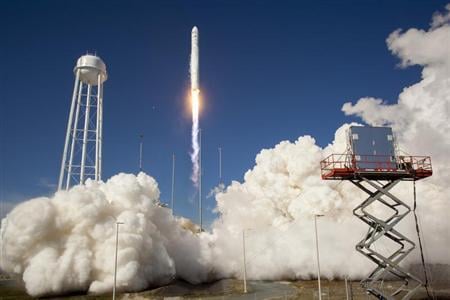
The Falcon 9 rocket was poised to launch at 8:29 pm (0129 GMT Monday) from Cape Canaveral, Florida, but the California-based company headed by Internet tycoon Elon Musk announced in the late afternoon it would put back the liftoff by a day.
SpaceX to launch rocket Dec 19, six months after blast
Tomorrow night "has a 10 per cent higher chance of a good landing. Punting 24 hours," Musk wrote on Twitter.
After launch, SpaceX will attempt to land the first stage of its Falcon 9 rocket in an upright position on solid ground for the first time, a milestone it sees as key for making rockets as reusable as commercial airplanes one day.
"If successful, this test would mark the first time in history an orbital rocket has successfully achieved a land landing," SpaceX said in a statement.
Several previous attempts at landing the rocket on a floating ocean platform have failed, but SpaceX says each try has taught them more about how to succeed in the future.
While the landing is key to SpaceX's plans, the primary goal of the mission is to deliver 11 satellites to low-Earth orbit for ORBCOMM, a global communications company.
Last month, Amazon founder Jeff Bezos -- who also owns the rocket company Blue Origin -- announced he had successfully landed his New Shepard rocket after a suborbital flight.
New Shepard flew to a lower altitude than the Falcon 9, making the landing an easier feat for Bezos's rocket than it would be for Musk's, analysts say.
Both companies are aiming to boost savings and efficiency in modern rocketry by creating a new generation of complex machines that can be re-used after launch.
Presently, rocket components costing many millions of dollars are jettisoned as debris after takeoff.
The Falcon 9 poised for launch Monday is 30 per cent stronger than previous versions, SpaceX said.
The return to flight is an important milestone for SpaceX, following the June 28 accident when the Falcon 9 exploded just over two minutes after launching from Cape Canaveral.
Orbital cargo ship blasts off toward space station
The blast also destroyed its Dragon cargo ship loaded with supplies for the astronauts living in space, and came just eight months after a space station-bound rocket belonging to competitor Orbital blew up over a Virginia launch pad.
Musk said the Falcon 9 blast was due to a faulty strut.
The accident came after a series of successful launches for SpaceX, which was the first commercial outfit to send a cargo craft to space under a $1.6 billion contract with NASA.

















COMMENTS
Comments are moderated and generally will be posted if they are on-topic and not abusive.
For more information, please see our Comments FAQ